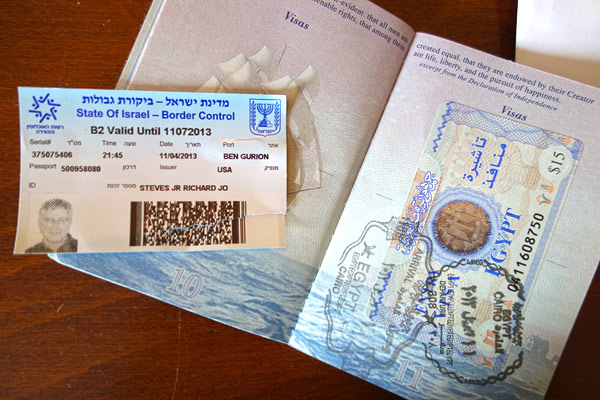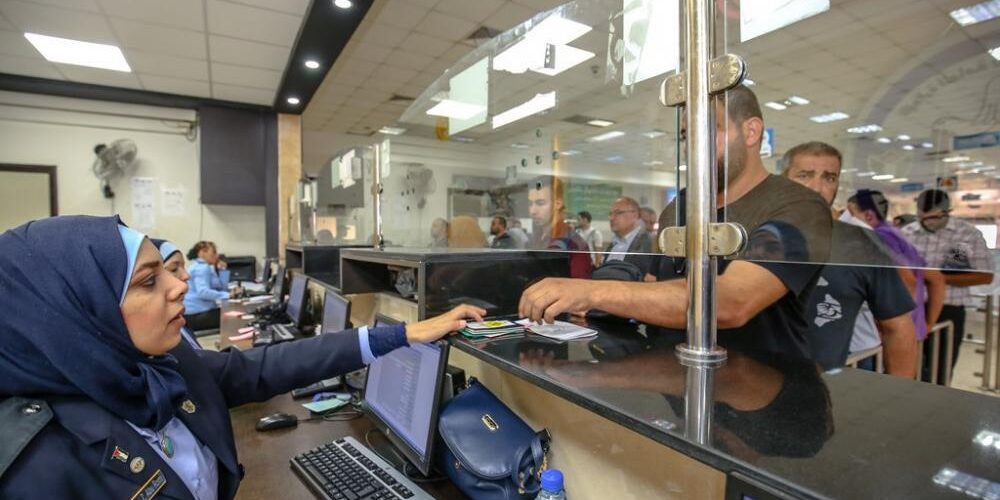As a foreigner visiting Palestine for the first time, you may find yourself anxious about obtaining the correct Visa to enter Palestine or the West Bank. You might want to study Arabic or conduct an internship, but you’re unsure as to how to stay in the West Bank for more than three months. You may even wish to stay in Palestine for a year or more. This article guides how you can apply for a Visa to stay in Palestine.
Direct Flights to Palestine
The Yasser Arafat International Airport in Gaza, adjacent to the Egyptian border, opened on November 24th, 1998, but barely stood for two years. On October 8th, 2000, the second Intifada (the Arabic term for revolt) started. The Israeli army destroyed the Gaza International Airport. As a result, Palestine (both Gaza and the West Bank) has been without an operational airport since 2000. This means that there are no direct flights to the West Bank.
Palestine has no visa policy since it is governed by Israeli authorities. To reside lawfully in Palestine, you must require an Israeli visa, which you can get at the airport. The Israeli security guard may ask you a variety of questions during the passport check, and the whole procedure will take several minutes. This is not a cause for concern and is considered regular practice.
Several travelers may acquire visas quickly, while others may be subjected to more in-depth interrogation before being permitted to enter. We would like to reassure you as a participant in our programs that this is a common/normal occurrence and the best thing to do is stay calm and comfortable while cooperating with Israeli border security personnel.

Getting an Israeli stamp on your passport
The first step of your journey in Palestine begins with an Israeli stamp. As it is now impossible to travel in Palestine without passing Israeli borders, those who would like to visit Palestine or Israel are generally concerned about the repercussions of getting an Israeli stamp on their passport. People carrying this stamp deal with drastic travel restrictions and this stamp can even make someone a target for detention or deportation depending upon the country.
Several countries boycott Israel entirely. This means that participating countries refuse entry to anyone who has an Israeli stamp on their passport or proof of previous visits to the State of Israel. Even a Jordanian departure stamp at the Allenby Bridge may qualify you for this boycott. Jordan, Egypt, and the Palestinian Authority have all signed peace treaties with Israel and have withdrawn from this boycott. Mauritania has never applied this boycott. Algeria, Tunisia, and Morocco have not enforced this boycott.
In 2020, the UAE signed a peace treaty with Israel, effectively restoring ties between the two countries. However, many Muslim countries, including Iraq, Lebanon, Libya, Sudan, Syria, Yemen, Iran, and the majority of Gulf Cooperation Council (GCC) members will continue to refuse admission to travelers holding an Israeli stamp.
Another important thing to consider is that certain countries will get you flagged by the Israeli government and banned from re-entry should you try to ever come back to Palestine after your internship here. A few of these countries include Yemen, Lebanon, and Syria.
Traveling for more than 3 months: Is it possible for me to get a student visa to study in Palestine?
If you would like to study at a university or language school in the West Bank, you will need to get a visa to enter Palestine from Israel. Obtaining one is very difficult, if not impossible. The ideal option in any given situation is for students to enter the West Bank on a tourist visa obtained upon arrival in Tel Aviv and remain for three months. If you want to stay for 6 months, you can leave Israel for a few days before returning to secure a new tourist visa for another 3 months.
According to our experience, unless you work for a non-governmental or humanitarian group, you will not be able to remain in the West Bank as a tourist for more than six months.
Israeli Visa on Paper
Israel is aware of the issues with stamp boycotts and the issues it causes. In January 2013, to mitigate this problem, Israel began issuing visa slips on separate pieces of paper with entrance and departure records and 2D barcodes.
After arriving at Tel Aviv’s Ben Gurion Airport (TLV), your passport should not be stamped. Generally, Israel has ceased to stamp passports. However, several individuals have reported getting their passports stamped while crossing land borders. If you depart via Jordan or Egypt and would to avoid an Israeli exit stamp on your passport, you can simply ask the Immigration Officer to stamp the blue slip supplied by the Israeli government instead.
If you do end up having your passport stamped, you can acquire a second passport from your government at cost, or an emergency one from your country’s embassy should your travel plans require it. The strategy of getting two passports has been used by journalists for years and should mitigate any issues you have with traveling before entering or after exiting Palestine. One of these passports can be used for European and Israeli travel and the other passport can be used for Arab countries. This method, while expensive, is commonly used by seasoned international travelers.

A Visitor’s Perspective
Tara, from the United Kingdom, visited Palestine in February 2020 and traveled throughout the West Bank. In her testimonial, she recalls “I had previously been to numerous Middle Eastern countries, and I was concerned that stamps from locations like Jordan and the UAE might jeopardize my chances of being approved upon my arrival at Ben Gurion. I was also concerned that receiving an Israeli visa stamp on my passport might prevent me from visiting other Arab nations in the future. I didn’t have to be concerned since there was no issue. Instead of having my passport stamped, I was issued an Israeli visa on a blue piece of paper, as were the other party members traveling with me. An Israeli border officer gave me access after I answered two straightforward questions, the first of which was about where I would be living and the second of which was about my work description.”
“The return travel aroused more in-depth inquiry, such as why I visited Jordan, who I knew there, when I last talked to them, and what was going on, but I answered all of the questions calmly and accurately and was permitted to continue my journey. During my journey to Palestine, I carried my passport and visa slip with me at all times since both of these papers were often required at different checkpoints. I never had any difficulty obtaining entry to any location on the West Bank.”
Conclusion
Obtaining a tourist visa to Palestine may seem overwhelming, but it should not be difficult. That said, do not throw it away! While here, always keep your visa and passport in a secure location. You may be required to display them while passing through Israeli checkpoints.
You will also be required to produce it upon departing from Ben Gurion Airport in Tel Aviv, Israel, for an exit visa to be issued. The worst thing that may happen is that you will be delayed at the airport for a while. Relax and use this opportunity to reflect on the experiences, new friends, and adventures that await you in Palestine!

